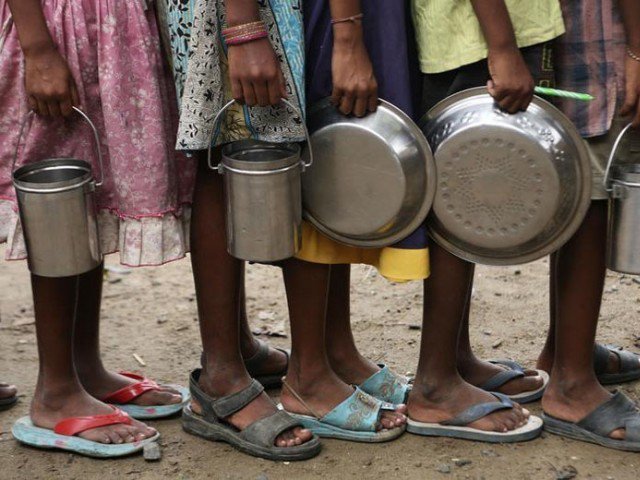Islamabad: At the end of two years of the Pakistan Tehreek-e-Insaf (PTI) government, 18 million more people may slip into abject poverty due to low economic growth and double-digit food inflation, claimed the country’s renowned economist.
Hafiz A. Pasha, the former finance minister of Pakistan and an earlier advisor of Pakistani Prime Minister Imran Khan, said that eight million people have already been added to the ranks of the poor by the end of the first year of the PTI government. He has projected that 10 million more people will slip below the poverty line by the end of the current fiscal year.
“The situation is very alarming due to an economic growth rate that is close to the population growth rate and an exponential increase in prices of perishable food items,” said Pasha while talking to The Express Tribune Tuesday.
“We do not have latest official poverty statistics,” responded Federal Minister for Planning and Development Asad Umar when he was contacted for the government’s version.
The minister said the country was exiting a severe balance of payments crisis which had its own implications. Umar said the PTI government accelerated the poverty alleviation measures aimed at protecting the poor and vulnerable people from the adverse impact of macroeconomic adjustments.
Pasha said that the government’s decision to simultaneously increase taxes, energy tariffs and devaluation of currency contributed to the increase in poverty.
By June next year, four out of every ten Pakistanis will be poor, according to Pasha’s working.
At the end of the PML-N government, three out of ten Pakistanis were living in poverty when the poverty ratio had been estimated at 31.3 per cent by him. A year ago he had estimated that national poverty ratio would increase to over 37 per cent, which he now has updated in the aftermath of a surge in food inflation.
The food inflation was recorded at 16.6 per cent in cities and 19.3 per cent in rural areas in November over a year ago, according to the Pakistan Bureau of Statistics.
The official poverty figures are missing since 2014-15 — a year after start of the last IMF programme, reported The Express Tribune.
In an earlier article, Pasha had said that the incidence of poverty fell from 36.8 per cent in 2015 to 31.3per cent in 2017-18. The decline of 5.5 percentage points implied that almost six million people were taken out of poverty in these three years, he added.
The year 2018-19 has witnessed a change in the trend. The per capita income growth was only 0.9 per cent and more recent estimates indicated that it may have been even lower, he added.
“There is a real risk that the incidence of poverty could increase by almost 5 percentage points from the level of 35 per cent in 2018-19. Therefore, by the end of 2019-20, the level of poverty in Pakistan could once again approach 40 per cent,” he added.
